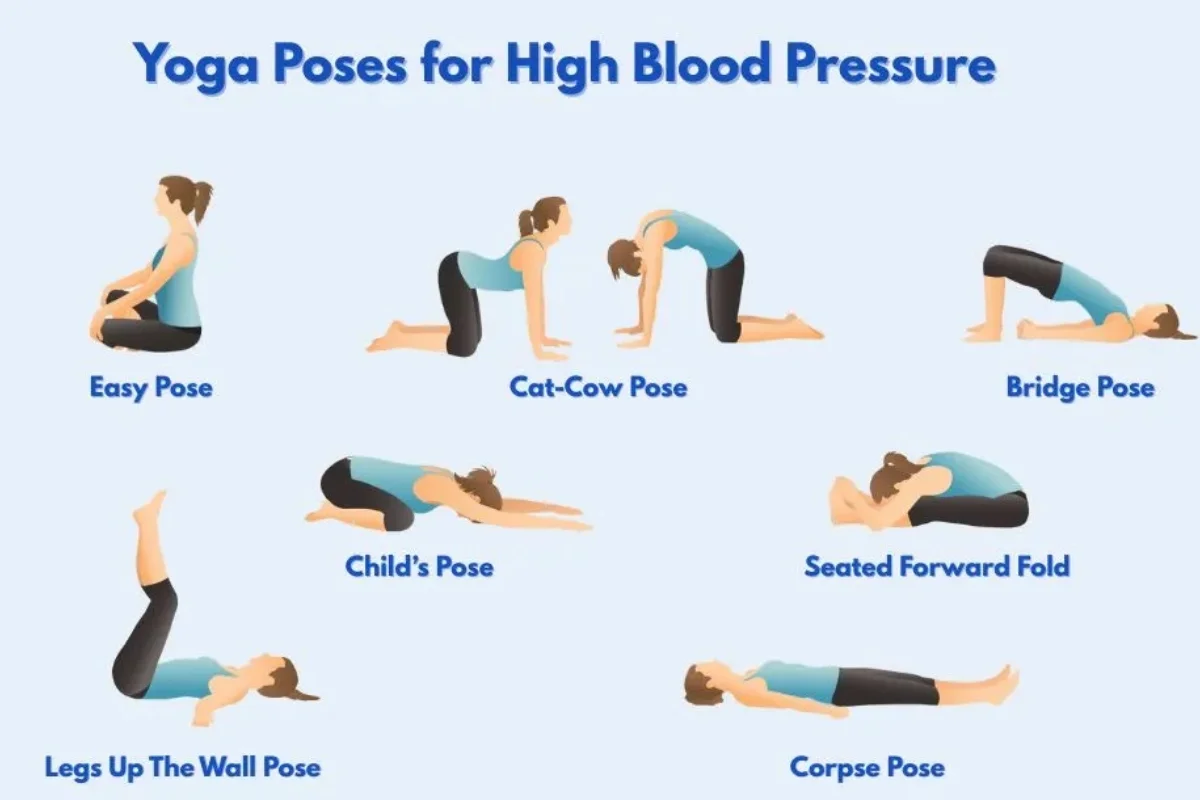Do you also think that your regular stress will soon make you a BP patient? Well, not just millennials, the problem of high blood pressure is now slowly hacking the system of the Gen Z population as well. While medicines make you lifelong dependent, Yoga gives you the scope to survive. Yoga not only reduces high BP, but it also helps you stay at bay from this issue.
Gentle Yoga Poses for Blood Pressure Control
Yoga reduces hypertension by calming down your nervous system, improving blood circulation, and relaxing your mind. However, there are specific Yog asanas that are scientifically more beneficial for high blood pressure than the others.
Sukhasana (Easy Pose) with Deep Breathing:
This is a very simple cross-legged yoga posture that relaxes your muscles and helps you breathe more oxygen. With deep breathing in Sukhasana, the stress hormones are subdued, which naturally leads to balancing your blood pressure.
DON'T MISS
Viparita Karani (Legs-Up-the-Wall Pose):
With this simple inversive yoga position, your legs get better blood circulation, reducing swellings and clots in the legs. This also improves the strength of the heart, making it capable of more intensive blood pumping.
Balasana (Child’s Pose):
Balasana is again a resting yoga pose, which relaxes the nervous system and relieves mental fatigue. This pose is especially beneficial for anxiety-related blood pressure surges.
Setu Bandhasana (Bridge Pose):
This pose strengthens your spine and abdominal muscles. This also improves blood flow to your heart while balancing your core strength and focus.
Tadasana (Mountain Pose):
This simple pose promotes ideal body alignment and breathing control. This posture will thus help you in balancing high blood pressure levels by letting the blood flow to every part of your body.
Breathing Techniques to Support Heart Health
Besides these yogic postures for blood pressure, you can also try some breathing techniques to aid your heart health. From ancient texts to modern practices, these two breathing techniques instantly soothe your tensions.
Anulom Vilom (Alternate Nostril Breathing):
The well-known alternate nostril breathing technique helps you balance the left and right brain hemispheres. This is offering you more oxygen and mental strength at the same time. With regular practice, you can get a lower systolic and diastolic blood pressure.
Bhramari (Bee Breathing):
The constant humming vibration while breathing will soothe your mind from the outside noise. The constant vibration will relax your arteries, easing pressure on your heart.
How Yoga Improves Circulation and Heart Function?
With regular yoga practice, you are enhancing the parasympathetic activity of your body, which naturally induces a feeling of relaxation. Yoga strengthens your heart, improves its capacity, and reduces vascular resistance. All of these factors together lead to better blood circulation, low BP, and great heart activity.
People with pre-existing high blood pressure, however, need to be cautious. They should avoid intensely invasive positions like headstands. They should also practice yoga under supervision and stop immediately if they feel any discomfort.
Disclaimer: This content, including advice, provides general information only. It is not a substitute for qualified medical opinion in any way. The methods and claims mentioned in this article should be considered as suggestions only; DNP India neither confirms nor denies them. Always consult a doctor before following any such suggestions/treatments/medications/diets.
